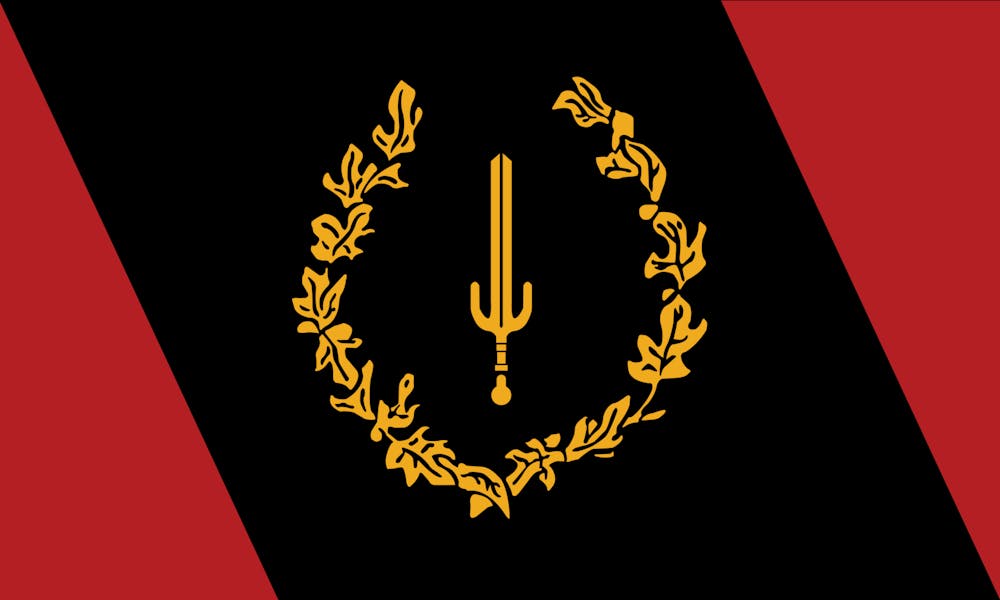“No, but where is your family really from?” A question I would hear too often after having already explained my heritage. Again, I would explain: I was born in and raised in Philadelphia. My mother was born and raised in Philadelphia and so was her mother. It was usually at this point I would disengage from the conversation. It felt pointless to try and convince others of the validity of my cultural background, especially when I did not believe in it myself.
Navigating my identity as an African American was difficult when I was growing up. Although I was American, I was also a Black person, and I couldn't always relate to mainstream American culture. Most of the popular American sitcoms I watched featured white families. Although I could connect to the young female characters in many situations, I often didn’t recognize the fashion trends, the music they listened to, or even the foods that they ate.
However, not being able to identify with the girls I saw on TV wasn’t much of an issue for me. I grew up in a city where over 40% of the population is Black. As a Black Philadelphian, I did not have to be conscious of my racial identity: I was mainly around other Black people.
High school was my first time experiencing a diverse environment, so I was forced to confront my racial identity. Most of my friends were children of immigrants. During multicultural celebrations, they wore their traditional clothing and waved their country’s flag, while I didn’t have anything to offer but my beat-up Converse, an oversized sweatshirt reading “Black Pride” with an American flag stamped in the center, and embarrassment.
Having experienced all of this, I started to believe that my people were devoid of culture.
It was during one of these multicultural celebrations that I shared my lunch with a close friend. To my astonishment, she had never tried bean pie before — which I thought was a Philadelphian staple — and I excitedly bought one for her to try. Mouth stuffed with pie, she exclaimed, “This is the best thing I’ve ever tasted! Do you know how it's made?” I didn’t. My mother and I usually bought bean pies from Black street vendors all over the city. But I had become curious, and with a quick Google search, I discovered that bean pies were a Muslim African-American creation, created specifically to be a healthier substitute for our sweet potato pie.
This seemingly mundane moment played a pivotal role in my understanding of my identity.
In hindsight, it was silly, but I never considered that the meals that I ate were a part of the traditions that my people had created. This extended to the clothes and hairstyles I wore, the music my family and I listened to, and even the way that I spoke. It wasn’t that my culture did not exist — I just hadn’t discovered it for myself.
SEE MORE FROM KIYAH AKINS:
Being an African American student at Penn is exhilarating… and exhausting
Too often, African Americans are accused of having no culture, or our culture is reduced to stereotypical depictions of hip-hop and sports like basketball. Though these two aspects of our culture are significant, our history and culture extend far beyond those stereotypical portrayals.
African Americans have made many great contributions to music, art, and fashion. Genres — from folk music, to military music, and rock and roll — have been influenced by African Americans. The Black Arts Movement of the late 20th century is often deemed “one of the most influential cultural and aesthetic movements of the last 100 years,” as many great literary and artistic contributions were made by many prominent figures in the community. African Americans also popularized fashion trends such as logomania, streetwear, and sneaker culture.
Contrary to popular belief, African Americans even have their own languages, such as African American Vernacular English and Louisiana Creole. And, what I found to be most important, African Americans have their own flag to represent their culture and history.
Even today, as a student at Penn, I still face challenges when it comes to my identity. Not only does Penn have a small number of Black students — to my surprise — African Americans are underrepresented in this population. Because of this, I often felt culturally isolated the way I did in high school.
That is why African-American history is of great importance to me. I have found that knowing one’s history builds a sense of self identity. I found comfort in my identity as an African-American woman through my people’s history. It has completely reshaped my perspective on my culture’s importance, and I am now overwhelmed with pride and the firm belief that my identity is impenetrable. I write this as the first full week of Black History Month comes to an end. I am still wearing my beat-up Converse, but I now wear that old sweatshirt with pride.
KIYAH AKINS is a College sophomore studying biology from Philadelphia. Her email is rakiyah@sas.upenn.edu.
SEE MORE FROM KIYAH AKINS:
Being an African American student at Penn is exhilarating… and exhausting









